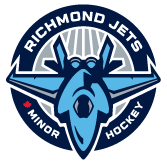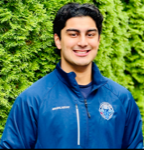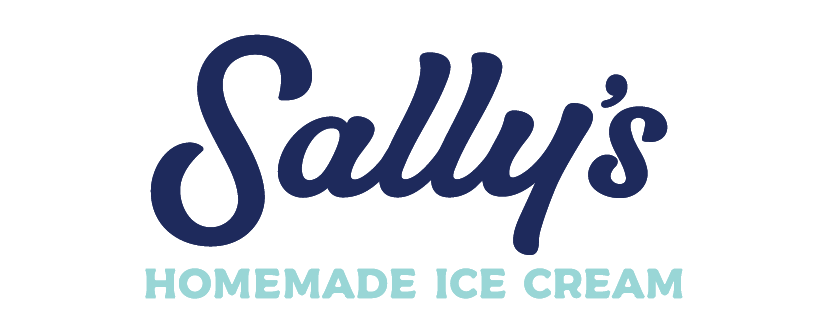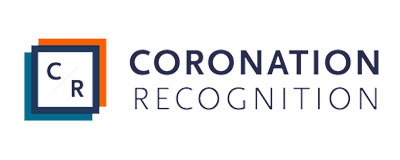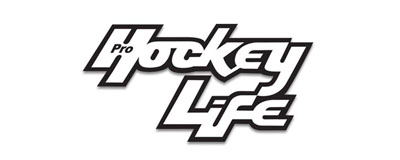Youth Coach Leadership Program
Take your leadership skills to the next level
Are you looking for an opportunity to make a positive impact on young hockey players' lives? Look no further than our youth coaching leadership program. As a coach, you will have the chance to develop valuable leadership skills, improve teamwork and communication, and promote a strong work ethic - all while helping young players reach their full potential.
By participating in our youth coaching program, you'll have the chance to work alongside experienced coaches and mentors who can help you develop your skills and make a difference in the lives of young players. You'll be able to share your love of the game and provide valuable insights into what it takes to be a successful athlete - both on and off the ice.
But coaching is about more than just developing hockey skills. It's about helping young players develop important life skills that will serve them well in all areas of their lives. Leadership, teamwork, communication, and work ethic are all valuable traits that can be applied to school, work, and relationships.
As a coach, you'll also have the opportunity to foster a positive team culture, where players are encouraged to support and encourage one another both on and off the ice. By helping to create a supportive and encouraging environment, you'll help build confidence and self-esteem in young players, while also teaching them important values such as respect, accountability, and sportsmanship.
In summary, coaching a youth hockey team can be a transformative experience - for both the players and the coaches. By joining our youth coaching leadership program, you'll have the chance to make a positive impact on young players' lives while developing your own skills and making a difference in your community.
How to apply?
If you're passionate about hockey and have a desire to make a difference in the lives of young players, we encourage you to apply for a youth coach position with Richmond Jets Minor Hockey Association. As a youth coach, you will have the opportunity to share your love of the game while helping young players develop their skills and reach their full potential.
To apply for a youth coach position, please email Linden Saip at hockeydirector@richmondjetsmha.com. In your email, please include your resume, a brief statement outlining your coaching experience and qualifications, and your availability for the upcoming season.
We are looking for dedicated individuals who are committed to creating a positive and supportive environment for our young players. If this sounds like you, we would love to hear from you. Don't miss this opportunity to join our team and help shape the next generation of hockey players.
Our Youth Coaches Benefit from some great perks too
- Mentorship meetings with Linden Saip & Milton Chan
- A Bauer Richmond Jets Jacket and Pants
- A whistle and coaching board
- A Richmond Jets hat
- A $300 gas stipend
- A reference letter from our President and Head Coach
2024 Youth Coach Program Coaches
Ishaan Basanti
Growing up in Richmond, BC, my passion for hockey began early, playing minor hockey for the Richmond Jets. The experience helped shape my skills and love for the game, and I quickly advanced through the ranks. My journey led me to play zone hockey for the Greater Vancouver Canadians, where I competed at a higher level and developed as a player. Later, I joined the Delta Hockey Academy, an elite program that further honed my skills and prepared me for the next steps in my hockey career.
My dedication and hard work paid off as I moved to junior 'A' hockey, playing for the Delta Ice Hawks in the Pacific Junior Hockey League and later for the Nanaimo Buccaneers in the Vancouver Island Junior Hockey League. These experiences were invaluable, teaching me resilience, teamwork, and leadership on and off the ice.
After my time as a player, I focused on academics, enrolling at Simon Fraser University to pursue a Social Data Analytics and Political Science degree. Alongside my studies, I wanted to give back to the hockey community that had given me so much. I returned to the Richmond Jets, this time as a coach, eager to pass on my knowledge and passion for the game to the next generation of players. It's been a rewarding experience, and I am proud to contribute to developing young athletes in my hometown.
Hockey has taught me many life lessons, both on and off the ice, instilling a sense of discipline, perseverance, and teamwork. I learned the importance of showing up daily with determination and understanding that success is built on consistent effort and resilience in facing challenges. The collaboration with teammates taught me how to collaborate, support one another, and lead by example.
These lessons have been valuable to my journey transitioning from a player to a coach with the Richmond Jets. I am committed to passing these values on to young athletes. I emphasize not just the technical skills and strategies of the game but also the importance of hard work, sportsmanship, and overcoming adversity. My goal is to help these kids develop the confidence and character that will benefit them in all areas of life, whether on the ice or in their future endeavors.
Giving back to the community that has shaped me is my way of showing gratitude and ensuring that the next generation of Richmond Jets players have the same opportunity to grow, learn, and build lifelong memories throughout their hockey journeys. Watching the kids develop both as athletes and individuals is a rewarding experience, and I feel privileged to contribute to their journeys, just as my coaches once did for me."
An Interview with U11A3 Assistant Coach Jake Trueman
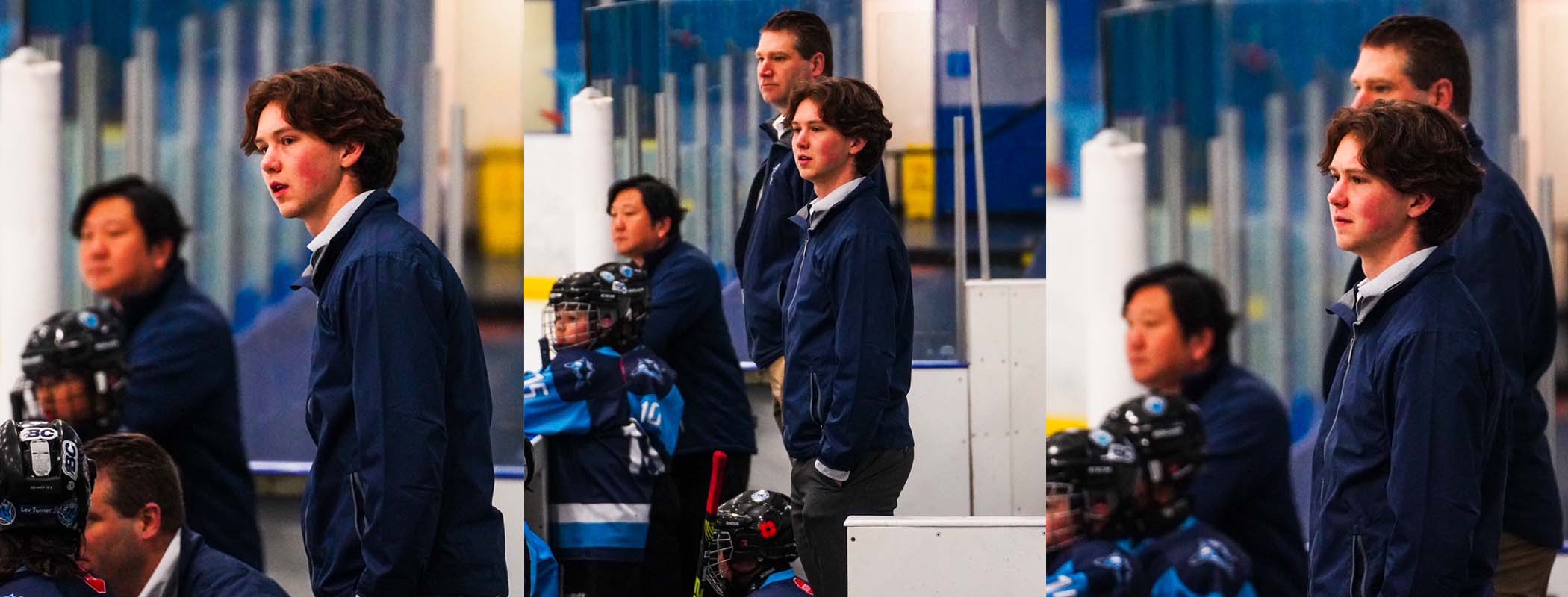
Tell us about growing up playing hockey in Richmond and do you have a coach that inspired you to coach one day?
Growing up playing hockey in Richmond was an amazing experience. I played hockey every season from the ages of five to seventeen. Most of my years were spent bouncing around the A2 and A3 teams, with the occasional season in House. I very much enjoyed the high level of competition that Rep offered, so I always tried to do my best when tryouts came. While I enjoyed all my years playing hockey, one year stands out above all. The 2018-19 season was one to remember. That season I was playing on the Midget A2 Team, or what is now U18 A2. This was the first year of the Richmond Jets Minor Hockey Association. The team was off to a great start leading up to the winter break with a full roster and a young and keen coaching staff. Then came the unexpected, very late cut from the A1 team. We already had a full roster, meaning we had to send someone down to House. This is not the kind of decision a coaching staff wants to make this late into the season. I ended up being the cut as I was going to miss a week of hockey leading up to the break for a family trip. I was called in for a one-on-one meeting with the coaching staff to be informed of the decision. While I was a little bummed with the decision, I was now an AP and told I would get called up to every game where there would not be a full roster. I was told that, while not officially, I was still a member of the team. I greatly admire the coaching staff for the way in which they handled this. It was a very hard thing to do and definitely a conversation no one wants to have. It was how the coaching staff handled the situation that first sparked the idea of coaching one day.
What inspired you to become a hockey coach, and what motivated you to give back to your minor hockey association?
As I stated previously, my 2018-19 hockey season sparked the idea of coaching minor hockey one day. The following two seasons were my last seasons, and I spent them playing house. I wanted to relax and have fun for my last two seasons. In those seasons, I found myself taking a bit more of a leadership role and helping the weaker players. I rather enjoyed this and found it came rather naturally. This began reinforcing the idea of coaching in the future. It wasn’t until September 2022 that I found a bit of extra time in my schedule and needed something to fill it. I realized that I needed some more volunteering and thought, what better than to take this opportunity to start coaching?
How do you approach developing the skills and abilities of young hockey players? Do you have any particular coaching philosophies or methods that you rely on?
I personally love using the Complement Sandwich method for giving criticism to young players. I will start by pointing out something I thought they did well and complement them. Then I will give them my criticism. I will, however, make sure I don’t use words like ‘that was wrong’ or ‘that was bad.’ I instead try to say, ‘in that situation, you should try and do this.’ I also make sure not to raise my voice. Once I’ve given my criticism, I give them another compliment on their play. I will either say the same thing I did before or bring up something new. I find that this method, especially for young kids, really helps them learn and grow. If you were to just tell them that they were doing something wrong, they will think they were doing a bad job. By ensuring you compliment them on part of their play, it reassured them that they are still doing a good job.
How do you balance the importance of winning games with the importance of player development and sportsmanship?
As a coaching staff, our philosophy was equal ice time for all players. This is paramount to not only player development but also confidence. If you are a player getting ready to go out next when suddenly the coach tells you to slide back and slots someone else in front of you, it really hurts your confidence. It tells the player they are a less valuable team member. This is not what we want, especially at the U11 age, where our primary goal is to develop a player's love for the sport. This past season, our primary goal as a coaching staff was to prioritize player development over winning games. If you prioritize player development, winning will come as a consequence. If you were following the U11 A3 team this season, you would know we won many games. We almost won the regular season. One thing that helped our second-place finish in the regular season was the fact that we got every sportsmanship point. We were very lucky this season to have a very talented and great group of kids that rarely took penalties. Every player showed vast amounts of respect and sportsmanship towards opponents and officials. We were all very happy that we did not have to teach and remind players about sportsmanship. Sportsmanship is a very important part of playing sports. Poor sportsmanship always reflects poorly not only on the team but on the association as well.
How do you handle conflicts or challenges with players, parents, or other coaches within the association?
Thankfully, I never had to deal with any major conflicts within the team this past season; all the players and parents were great. However, being a coach for a team of nine- and ten-year-old boys, you are going to get some minor disputes. Often times these disputes would be little shoving matches where a stern ‘Hey’ or ‘Stop it’ would suffice. Sometimes I would get a, ‘but he started it.’ I found the best way to respond to that was, ‘I don’t care; you’re both guilty.’ If I had ever gotten a conflict that was on the larger side, I had the plan to approach it. I would start by separating the two kids and getting each side of the story. I would then do my best, depending on the issue, to resolve the conflict.
How do you communicate with parents and players about expectations, goals, and progress throughout the season?
At the beginning of the season, the coaching staff held a parent meeting. This is where we discussed our expectations for the parents and players. We discussed our coaching philosophy and everything the parents can expect from us. We conducted a similar meeting with the players but just made it briefer and simpler. We told them about the dress code and early arrival for games. We also told them about what our plan for the year was and how we were going to make this a very fun year. During the season, we would encourage and compliment the players on their play to let them know they were doing well. If we found they were coming late to games or practices or not showing up in the dress code, we would make sure to remind them. As far as communication with the parents throughout the season went, this was also relatively easy. We used the chat feature through TeamSnap to communicate with everyone. That way, the staff could communicate with parents and parents could communicate with each other. It was a sys that worked very well.
What do you hope your players will take away from their experience with you as a coach?
I hope the players will have a newfound love for hockey after this season. I tried to ensure that all the players enjoyed every moment they were on the ice. Sometimes that is difficult after a hard loss, but I always reassured them that losing is part of the game. Losing is what makes the wins feel better. I also hope the players will learn new skills and further develop others. Not only do I want players to enjoy every moment of hockey, but I also want them to be the best hockey players they can be.
How do you continue to develop your own skills and knowledge as a coach, and what resources do you rely on?
I was constantly developing my coaching skills by observing the way players would react after I gave some tips. If I gave them a tip and noticed they didn't take it, I would give it to them again, but this time I would change my approach. I was also constantly observing other coaches and their coaching styles. If I noticed they did something different than me and it worked, then next time, I would try it their way.
How do you think your role as a coach fits into the larger community of minor hockey, and what impact do you hope to have on the association and its players?
I hope my role as a coach has helped reinforce a group of children's love for hockey. I will have accomplished my goal if they keep playing all the way through high school. I also hope to inspire other young former players to get involved in coaching. I believe that having at least one former or current young coach in your coaching staff will significantly help a hockey team. It helps the kids listen and learn because the young coach is more likely able to relate to the players.
How do you ensure that your team is inclusive and welcoming to all players, regardless of skill level or background?
We ensured all the players had equal ice time and knew they were equal. As a coaching staff, we also decided not to have and Captains as we felt that created a bit of a hierarchy. We also discouraged any destructive criticism among players. We were okay with a little bit of constructive criticism, but seeing as these were nine- and ten-year-olds, I don't believe they knew what that is. Luckily, there was never really any criticism of any kind, and everyone was most kind and accepting of everyone.
What advice would you give to other young coaches who are looking to give back to their local minor hockey association?
My advice for future young coaches would be not to forget what it’s like to be a player. Remember your years as a player and how you liked to be coached. Try to apply the coaching philosophy you liked the most to your coaching style. You also want to develop trust with your players. Whenever you can, try and start conversations with a few of them. They can be about hockey, school or just anything they might like. As a minor hockey coach, your main goal is to make the kids enjoy hockey and keep them playing.
What are you studying now, and tell us how playing hockey has helped you with your academic and career goals?
I am currently in my second year of study for Engineering at The University of British Columbia. Hockey has greatly helped me with my communication and teamwork skills. I attribute most of my group project success in school to hockey. Hockey has taught me how to cooperate with others and that some things can’t be done by yourself. I hope to also apply those skills in my future career as an engineer. Most engineering jobs require you to work in a team of other engineers. This is where effective communication and teamwork can set you apart from other applicants.
Richmond Jets Minor Hockey Association
As one of the largest minor hockey associations in British Columbia, the Richmond Jets Minor Hockey Association offers an integrated (boys and girls) minor hockey program from Initiation to Juvenile. Featuring both recreational ("C") and competitive ("A") streams, our programs operate out of the three different facilities in the City of Richmond: Richmond Ice Centre (RIC), Minoru Arenas (Stadium and Silver Rinks), Richmond Oval (North and South rinks).
We acknowledge the financial support of the Province of British Columbia.
